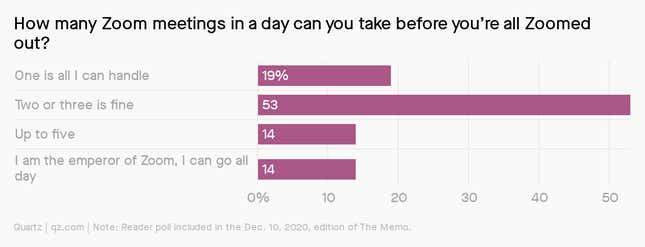To modern workers everywhere,
Vaccinations have begun. Now come the questions, with a particularly big issue hanging over employers: Should they make Covid-19 vaccines mandatory? And, if they don’t, how can they ensure employees will roll up their sleeves and voluntarily take the jab?
In some industries, there is little to debate. Frontline healthcare workers, for instance, have long faced vaccine requirements. For people who work in warehouses, meat-packing plants, fast-food outlets, offices, and other sites, what employers should do now is not as obvious. What we do know is that business owners likely will have the right to make vaccines obligatory. Even though the current Covid-19 vaccine is authorized only for emergency use, it’s expected that the same legal guidelines will apply to it (and others to follow in the Covid battle) that apply to the flu shot and other fully approved immunizations. That is, yes, employers can make the needle necessary and fire anyone who refuses it, but workers can request exemptions for medical reasons or on religious grounds.
Some companies, like Facebook, have already encouraged use of the vaccine while making it clear that it won’t be mandatory. Bunny Ellerin, director of the healthcare and pharmaceutical management program at Columbia Business School, sees the most upside in this option for office-based firms where social distancing is possible. It would mean that companies are treating employees like adults, allowing them to make the decision to be vaccinated or not, she tells Quartz.
Making it mandatory would be “a slippery slope,” she argues. Your company can tell you not to smoke at work, for example, but it can’t block you from stepping outside for a puff. “The vaccine strikes me as somewhat similar to that. You’re injecting something into your body,” she says. But she argues that anyone who comes into contact with a lot of people, in a store or factory for example, should face a vaccine requirement—which is arguably a slippery slope in and of itself.
Until vaccines are widely available at pharmacies and doctor’s offices, we ought to expect all kinds of “small battles” around workplace vaccinations and equal access to vaccines, predicts Justin Holland, CEO and co-founder of Healthjoy, a US employee benefits platform. But that doesn’t mean companies should step back from whatever incentives or requirements they want to place on employee immunizations. “If business leaders are going to vaccinate entire populations of their employees, and they’re going to make it happen quickly and proactively, I have a hard time thinking that there’s an ethical problem or an ethical situation there,” Holland says. “It really comes down to, how do we saturate the population as fast possible to get to the point of herd immunity.”—Lila MacLellan
Five things we learned this week
The next decade of growth will come from solving societal problems. Purposeful companies are catering not to “users” but to citizens.
How much is the government to blame for the drop in US business revenue? Perhaps not as much as the lockdown critics would have you think.
The US federal minimum wage is becoming increasingly obsolete. A Quartz analysis shows the average minimum wage across the US in 2019 was $2 more than the federal minimum.
Why paying people to get the coronavirus vaccine won’t work. A pair of health law professors weigh in.
Workers want direction from management. Almost any map will do.
30-second case study
When Justine Smyth joined the board of the New Zealand telecoms company Spark in 2011, she had an unusual request. According to executive search firm Egon Zehnder, which highlighted her experience in a new report on global board diversity, Smyth accepted “on the condition that the next director would also be female.”
The stipulation worked. The report notes that Spark’s board is now 50% women, including its executive chair and CEO. “Take the first appointment,” Smyth says in the report, “but be an advocate for change. I was pretty determined not to be the token woman appointment that would tick some boxes.”
The takeaway: As Quartz at Work’s Sarah Todd notes, research has shown there needs to be a critical mass of women—at least three—in order for the rest of the board to accept them as equal members, rather than treating them as tokens or a separate women’s faction. It’s easy to extrapolate this dynamic to race, sexuality, or any other basis for diversity.
As more boards attempt to diversify, whether pushed by law or economic incentive, tactics like Smyth’s could go a long way toward making the journey less lonely and more effective. And as Sarah reminds us, “one needn’t be a woman or member of a racial or ethnic minority in order to make this kind of impact; one need only be an ally.”
Work’s a beach
Japanese inns were apparently first to offer pandemic “workation” packages for stir-crazy people toiling from home, but hotels around the world soon picked up on the trend. Now Hyatt has released a list of the top five most popular destinations for its “Work from Hyatt” extended-stay packages and astute readers will notice a theme: There’s a heavy emphasis on the “vacation” in this very 2020 portmanteau.
- Hyatt Regency Waikiki Beach Resort and Spa (Honolulu, Hawaii)
- Andaz Mayakoba Resort Riviera Maya (Riviera Maya, Mexico)
- Hyatt Regency Coconut Point Resort and Spa (Bonita Spring, Florida)
- Grand Hyatt Vail (Vail, Colorado)
- The Cape, a Thompson Hotel (Cabo San Lucas, Mexico)

Words of wisdom
“It’s very clear that none of us are doing enough.”—Halla Tómasdóttir, CEO of The B Team, a nonprofit that works with business leaders on sustainability goals, on the private and public sector track records five years after the Paris climate agreement was reached.
A new field guide
The momentum behind the new employee activism movement is redefining the employer-employee social contract. Explore the implications with us, in our new field guide to employee activism. Read:
- How a new generation of workers has revitalized employee activism.
- How corporate leaders can respond to employee activism
- Six employee activists on the practices of effective organizing
- A timeline charting the new rise of employee activism
- Digital tools help employees mobilize the workforce
- Can Europe effectively legislate the right to work-life balance?
Not a Quartz member yet? Sign up for a free trial—or go ahead and buy an annual membership at 20% off, using the code QZTWENTY.
We want to know
Do you think your company should make vaccines mandatory?
I’m still debating with myself
I really don’t mind either way
And the results of last week’s poll

ICYMI
Our Dec. 10 workshop on managing conflict at work was full of great tips. Missed it? Fear not! With a Quartz membership or free trial you can get our detailed recap or watch the complete replay. Here’s just a taste of what we learned from presenter Dian Killian, an expert in workplace communication, self-management, and conflict resolution:
- Recap, recap, recap. In the midst of a heated discussion—or any discussion, really—it can be useful for each person to repeat and check what they’ve heard, without passing judgment.
- Don’t be afraid to confront in the moment. If you’re interrupted in a meeting, you don’t have to accept it, stew on it, and then awkwardly raise the episode with the offending person later. Just speak up and say something along the lines of, “I hear you coming in with an idea; I just need a minute to finish what I’m saying.”
- Empathize with the other. If a conflict has you thinking about how you’re feeling and what you’re needing out of the situation, don’t forget to also ask yourself what you think the other person is feeling or needing. It might be at odds with your own needs, but you’ll be able to go into the next conversation with a lot more empathy.
[button href=“https://qz.com/work/1944912/watch-quartzs-workshop-on-effectively-managing-conflict-at-work/”]Play it back[/button]
Be sure to stay tuned for our 2021 Quartz at Work (from home) workshops, which kick off in January.
You got The Memo!
Our best wishes for a productive and creative day. Please send any workplace news, comments, conflict-resolution tips, and workcation destinations to work@qz.com. Get the most out of Quartz by downloading our app and becoming a member. This week’s edition of The Memo was produced by Heather Landy and Sarah Todd.
